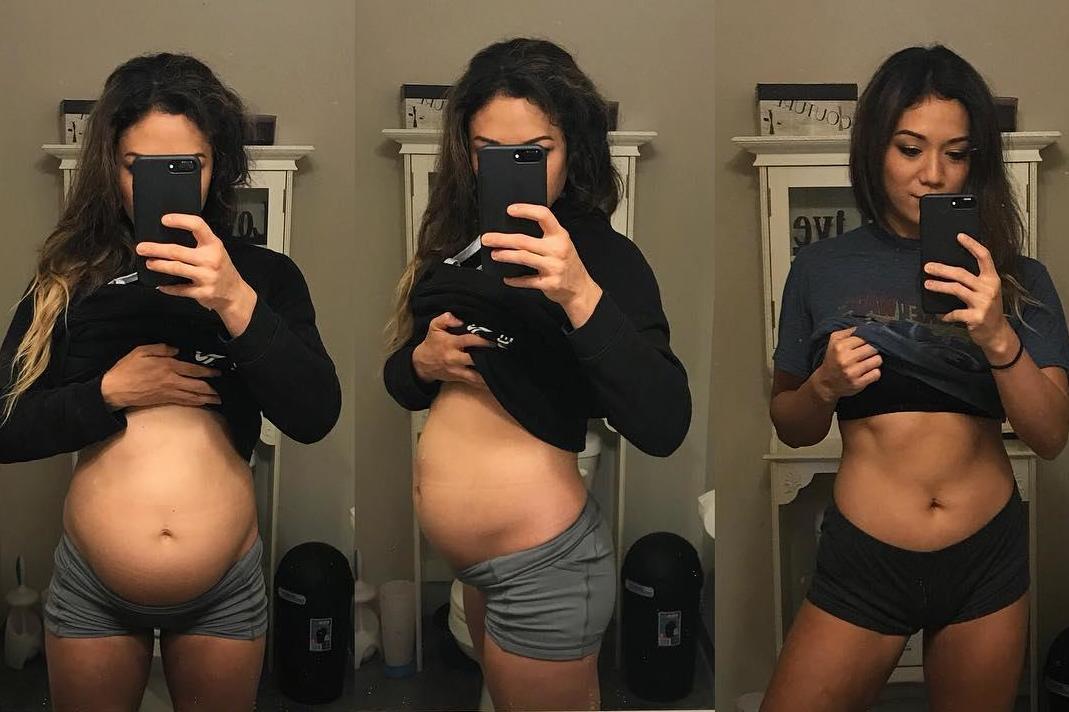Bodybuilder shares drastic before-and-after bloating photos
Certain foods can trigger her to bloat in minutes

A bodybuilder has demonstrated how certain foods can trigger her to bloat in minutes by sharing drastic before-and-after photos on Instagram.
Michelle Middleton is a figure competitor from Oregon, USA. She’s garnered 104,000 avid followers due to her impressive fitness posts.
Less than a week ago, Middleton decided to post a photo on her profile displaying the effect that particular foods often have on her body.
Positioning a photo of her with a bloated stomach next to another photo where her stomach is flat, the fitness fanatic explained how people are often taken aback by her frank bloating posts.
“When I say I’m bloated… I’m bloated,” she wrote.
“I do these bloat posts every now and then but people still get surprised at how big my belly gets.”
Middleton explained how typically high FODMAP foods (Fermentable, Oligo-, Di-, Mono-saccharides And Polyols) can cause extreme bloating.
“The foods that make me the most bloated are yogurts, protein powders, apples, pears, watermelon, broccoli, cauliflower and asparagus.”
Since news has spread about Middleton’s initial Instagram post, she decided to address her followers again to dismiss any myths going round about rapidly losing or gaining weight.
Referencing an article written by The Daily Mail, Middleton wrote: “I just wanted to clarify to the new followers that the last pic is from my prep in the late summer.
“So yes I do get bloated but I don’t magically lose 15 lbs and have abs.”
While some people may experience bloating more than others, women are usually more prone to it than men.
Nutritionist Cassandra Barns explained how biological differences can affect a woman’s tendency to bloat.
“Women’s digestive tracts are slightly longer - around 10cm. They also have a different shape than the male gut and have less space because of the room taken up by the reproductive organs including the uterus and ovaries,” she stated.
“Higher levels of testosterone also keep the abdominal wall tighter in men. All these factors mean that bloating and constipation are more likely to occur in women.”
So, what can you do to beat the bloat? Barns advises chewing your food slowly, as this ensures that the food is digested properly and also encourages you to eat slower.
Barns also suggests that following a “low-FODMAP” diet could help you avoid bloating.
Subscribe to Independent Premium to bookmark this article
Want to bookmark your favourite articles and stories to read or reference later? Start your Independent Premium subscription today.

Join our commenting forum
Join thought-provoking conversations, follow other Independent readers and see their replies